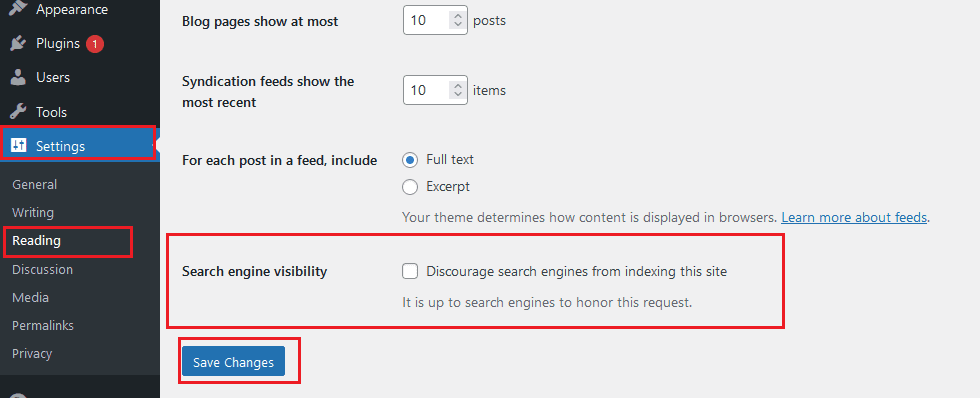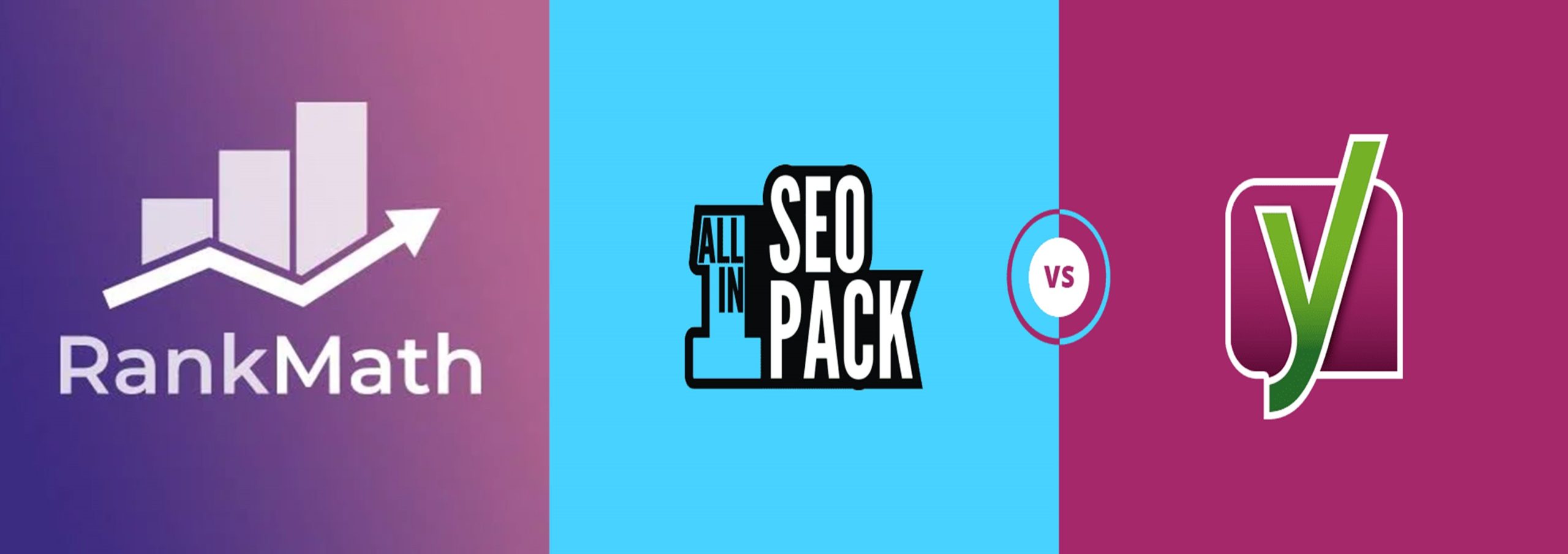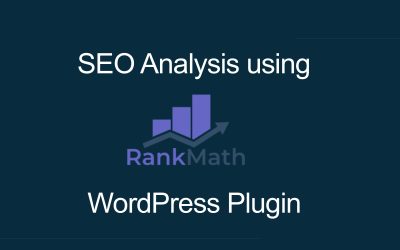To get that good content to the masses, you need to resort to best practices and this is what this article is all about – teaching you how to boost the visibility of your website by using robust and well-tested SEO practices.
nanadwumor

-
SEO is short for Search Engine Optimization.
- WordPress is free and easy to use. It explains why many websites are built with WordPress
- Make sure your website is visible to search engines.
- Your post URL should be SEO friendly
- Your choice of either WWW or non-www depends partly on your type of website
- Use plugins to prop up your SEO stature
- Give your WordPress site XML sitemap
RECOMMENDED ARTICLES
How to do SEO Analysis using Rank Math WordPress plugin
The RankMath SEO Analyzer lays the basic foundation for your website to get continuous traffic. It's not the end of it though as you are required to continue tuning your SEO to improve traffic. ...
How to display Divi Blog in List Layout using CSS in Code Module
The blog module is one of the many modules in the Divi theme. The blog module displays the blog posts. The blog module can be used to display categories of blogs on a page. The blog module can...
Some WordPress wp_config file Hacks you did not know
The wp-config file is a core WordPress configuration file. This file is generated during the WordPress installation and contains details specific to your installation and server environment. Read this article if you want to know the structure and meaning of the...
If you are here, then you’re worried nobody is finding your content or visits to your website aren’t impressive.
Don’t worry, this is about to change. Just grab a coffee, wear a smiley face while I take you on a tour which will miraculously change the fate of your new or old website. This is not a bluff! It has worked for me and many others.
The one reason you would want to build a website is to get people to visit your website.
You may be writing very good content alright but what if nobody is finding it online? Kind of frustrating. Isn’t it? Yeah, tell me about it!
To get that good content to the masses, you need to resort to best practices and this is what this article is all about – teaching you how to boost the visibility of your website by using robust and well-tested SEO practices.
What is SEO?
Okay, first things first. What’s SEO and why does it matter so much?
SEO is short for Search Engine Optimization. To optimize something simply means to make the best or most effective use of (a situation or resource).
Do you get the drift now? So SEO refers to practices website owners like you do to ensure that when people search for anything that can be found on their site, search engines like Google, Bing, duckduckgo etc will list their post or website first or among the firsts.
In other words, they’re practices you indulge in to rank high in any online search.
Should I even care about SEO?
Well, you are a good writer. Aren’t you? You are very knowledgeable in your field. I guess so. So why should it be difficult for me to get found online. You ask?
When people type words or statements into search engines like Google, Google uses complex mathematical algorithms to find just the perfect match for their search.
Google is constantly modifying its algorithm so as to offer the best results to content searchers. But as hard as those engineers at Google try, they can’t be overwhelmingly perfect. Can they?
A little tweak from your side will help the search engine to identify your content or website easily and pop it up to content searchers.
Think about it. Is it not so easy to find your key if it has a key holder – a large or outstanding one for that matter? So the little tweaks you throw into your website will give the search engine a slight nudge on the head with the silent scream “hey, buddy. You must be looking for me. Here I am!”.
WordPress best practices to tune your SEO
Enough talk. Let’s cut it to the chase. What are the SEO practices that can shoot your website content to the doorstep of search engines? Let’s dive in.
(1) Choosing WordPress
Oh yes! You’re in luck. WordPress is free yet the engineers at WordPress put in so much to ensure that the code on your site runs fast and well optimized for search engines to find.
(2) Make sure your website is visible to search engines.
By default, WordPress makes your site visible to search engines. But it’s a good practice to make sure your site is indeed visible to search engines like Google. Who knows? You may have unintentionally turned your website’s visibility off. Isn’t it good to double check?
To check the visibility of your website, take these steps:
- log into your WordPress dashboard
- Click settings
- select Reading
- scroll down to the tail end of the page where you see Discourage search engines from indexing this site.
- Make sure this checkbox is unchecked or not ticked.
- Click save to save changes.

Hurray, you can be found online. Well, there’s more we can do to fine tune to the just perfect frequency. Read on!
(3) Your post’s URL should be SEO friendly
Every post you type has a unique url that helps search engines to locate it. URL means Universal Resource Locator.
A good URL is easily readable by humans. This helps the user to know what to expect when he clicks on the post.
https://www.factalive.com/top-7-wordpress-seo-guides-for-beginners
A good URL is also short. Top ranking permalinks average around 59 characters.
Well, permalink is just a fancy term for the permanent URLs to your individual blog posts, including categories and other lists of weblog postings.
A permalink is that which another weblogger will use to link to your article (or section), or how you might send a link to your story in an e-mail message.
The URL to each post should be permanent, and never change – thus, permanent link ( permalink).
So let’s go check how WordPress present our post’s permalink.
- log into your WordPress dashboard
- Click settings
- Select Permalinks
- Select the Post name option. This means your permalink will use the title of your post.

This makes it easy for potential visitors to know what your post is all about.
You do see several options like Plain, which uses numbers in the permalink which may be intelligible to the user; Day and Month which uses the day and month you published the post online; Numeric etc
Warning: Changing Permalinks is like changing your residency address or phone number. Do you change your residency address every month or year? You know why you don’t do. Right? Because doing so will make business partners, friends and family find it difficult to locate or contact you and that can be costly. Isn’t it?
The same applies to Permalinks. If you change your Permalink type on your site which is some months old and pretty established online, you lose all your social media share data and it’s likely you’ll lose your SEO ranking.
Search engines keep track of how often people search for your content. This makes them to likely present your content first in any future search that bothers on your content. If you change your Permalink, they cannot identify your residential address anymore even if they wanted to find you for a user.
Unless, it’s very necessary, don’t change your Permalink after using one particular structure for a very long time.
(4) WWW or non-www?
Www means world-wide web. At the beginning of the internet, websites began with www. Example : www.factalive.com
But after sometime, webmasters realized a rather pervading online behavior. People were searching for websites without the www. Example: instead of www.factalive.com, people just typed factalive.com.
This sequence convinced webmasters that it was time to adapt to the change. After all, if the only thing that differ in the various websites was the name of the site but not the www, then won’t it be prudent to allow such behavior? Yes, they did.
But are there any consequences in choosing one over the other? We have a nice article dedicated to that. We urge you to read this short piece on that : www vrs non-www.
If you want to set your site to use www or not, follow these steps :
- log into your WordPress dashboard
- Click settings
- select General
- Edit the area with side caption: WordPress address and site address to include or exclude www.
(5) Using plugins to prop up your SEO stature
WordPress is an already-made framework. It’s generic and to customize it, you need themes and plugins.
A plugin is just a piece of code with a special function that is installed on your site to deliver a specific function.
Example: there’s a plugin for tweaking your SEO, online security, inserting ads etc.
So here, we’re going to make your life easy by giving you the best plugins to get you started. Some plugins are free but most have premium features that require you to spend some few dollars.
Trust me, it’s worth spending some few dollars on some of these plugins. They work like magic and push your site to the very front of searches increasing your organic search and boosting your revenue in a short period of time.
Okay, enough talk. Here are some of the outstanding SEO plugins we strongly recommend.
There are a huge number of WordPress plugins out there for even just SEO. But we recommend you to consider these three : RankMath plugin, All-in-one SEO plugin and the Yoast plugin.

All in One SEO for WordPress is the original WordPress SEO plugin started in 2007. Over 3 million smart website owners use AIOSEO to properly setup WordPress SEO, so their websites can rank higher in search engines.
Since 2008 Yoast SEO has helped millions of websites worldwide to rank higher in search engines.
According to their page, Yoast’s mission is SEO for Everyone. Their plugin’s users range from the bakery around the corner to some of the most popular sites on the planet.
RankMath is the newest kid on the block. It is nicknamed as the Swiss army knife of WordPress SEO. It is the first SEO plugin to allow content creators to rapidly create content using its own Artificial Intelligence (AI).
Its host of intelligent features brings top SEO capabilities in your hands that were previously out of reach. The smart automation features give you the power of an entire SEO team with just a few clicks. A well thought out design, powerful features, and years of development by the MyThemeShop squad make RankMath a game-changing SEO plugin that will level the SEO playing field in your favor to help increase traffic.
Among the three(3), RankMath, is the most recent SEO plugin. Surprisingly, RankMath offers the best for your money. It is super cheap than AIOSEO and Yoast. It offers outstanding features to the customer even with its free option. I encourage you to get the RankMath Pro editon and you will never look back. Its features are mind-blowing especially for such a comparatively cheaper price.
(6) Giving your WordPress site XML sitemap
XML is short for eXtensible Markup Language.
Don’t be intimidated by the name. An XML sitemap is simply a special file that lists all the content on your website using this so-called XML format.
It’s like a summary sheet for the search engine. It’s similar to how you easily search for a content in a book by resorting to the table of contents
The major importance of XML sitemap is to help search engines to better understand your website. It’s your site’s map and you know what a map does. Right?
The following are some of the things an XML sitemap will help with your site:
It helps search engines to know :
- the number of pages on your website
- the most important links on the site
- which pages or posts are frequently updated
(7) Add Your Site to Google Search Console
Google Search Console is a tool by Google that offers a slew of tools to website owners. These tools are called Webmaster Tools.
Adding your site to the world’s biggest Search engine will improve your SEO significantly.
Google Search Console gathers data and helps you to see how your website is fetched and presented to visitors in search results.
Do you know what words or phrases visitors use to find your website? Google Search Console lets you know the search terms people type in to search for your website.
Another interesting variable you get to know is how often people click on your posts or pages. In summary, Google Search Console presents to you how people see your website, what terms they use to visit the site and even how often they click to visit it. These data are very important to help you understand which content, terms to write about in order to get more clicks.
There are at times search crawlers may be having a hard time crawling your site. If that happens, people find it difficult to visit and click on your site. Google Search Console alerts you and directs you to take appropriate action to fix it.
Have you added your website to Google Search Console already? If not, follow this link to learn how to do it.
(8) Add your XML Sitemap to Google Search Console
If you have added your website to Google console already, make sure to do the following too.
XML is short for eXtensible Markup Language. An XML sitemap is file that contains a list of all your website content in XML fortmat. XML Sitemaps help search engines to discover and index your content.
There are many ways we can create a sitemap. If you have installed RankMath, we will make it easy. Get the free version of RankMath if you haven’t installed it yet. It is one giant SEO plugin for all your needs.
Let’s first create a Sitemap using RankMath.
Navigate to RankMath > Sitemap Settings . Configure the Sitemap Settings.
Copy the sitemap link to be pasted in Google Search Console.

Step 1: Sign in to Google Search Console if you have not already done that.
Step 2: At the left menu, click on Sitemap
Step 3: Paste the last part of URL of your website’s Sitemap
Step 4: Click on Submit to save the changes

Google Search Console gathers data and helps you to see how your website is fetched and presented to visitors in search results.
Do you know what words or phrases visitors use to find your website? Google Search Console lets you know the search terms people type in to search for your website.
Another interesting variable you get to know is how often people click on your posts or pages. In summary, Google Search Console presents to you how people see your website, what terms they use to visit the site and even how often they click to visit it. These data are very important to help you understand which content, terms to write about in order to get more clicks.
There are at times search crawlers may be having a hard time crawling your site. If that happens, people find it difficult to visit and click on your site. Google Search Console alerts you and directs you to take appropriate action to fix it.
What to do after adding sitemap to Google Search Console
Google Search Console is a very helpful tool. It helps the website owner to have good insight as to how his site performs, the problems and what needs to be improved. We advise that you consistently check your Google Search Console frequently, at least once every two weeks in order to be informed about the performance or health of your website and posts.
(9) Tune your blog Posts to improve on SEO
So you bought a very nice domain name for your nice. You installed the most popular plugins and best for SEO so you think you are set for a big traffic?
No! SEO is dynamic and a lot of factors go into improving on SEO.
After installing an efficient SEO plug-in like RankMath, AIOSEO or Yoast, you’re now set for the most important part – setting it up to work as expected.
There are a couple of important variables that every top-notch SEO plug-in has. Let’s look at them.
(i) SEO title : The title of your post is very important. No matter what you are writing about, it is important that you frame your title such that keywords are searched by visitors.
(ii) meta description : meta means data about your post.
(iii) Focus keyword : A focus word is a word or phrase that people search frequently online.
Learning how to optimize your blog post entails choosing a better SEO title, meta description, focus keyword among others. This is called on-page SEO tweak and it’s very crucial for SEO success.
All top SEO plugins such as RankMath and Yoast allow you to add SEO title, meta description, and focus keyword to every blog post and page. It also shows you a preview of what users will see when they Google your website.
We recommend that you optimize your title and description to get maximum clicks in search engine results.
When writing your blog post, simply click on the (RankMath) SEO section and take full advantage of it.
(10) Do keyword research when you write posts
What is the guarantee that what you want to write about is what majority of people are searching online? Have you taken time to think about the keywords people are inputting for their searches?
If you don’t do keyword research, then you must be writing blindly and hoping someone hops onto it one day. Time to target your audience efficiently.
Keyword research is simply a fancy term to explain a way of finding out what words, phrases, terms, content in your chosen niche that people are searching for.
For example, if you want to write a post about, say, use of SEO plugins, you frame your title well using keywords like “how”, “how to” etc in order to get better SEO ranking. That’s, How to use SEO plugins. If you are going to talk about, say, just 10 ways to use SEO plug-in, it can better be framed as – Top 10 ways on how to use SEO Plugins.
To know the keywords that people are searching for or your competitors (similar websites) are ranking on, you can use keyword research tools. There are a lot of keyword research tools you can use.
There are free keyword research tools as well as paid keyword research tools.
(11) Use categories and tags efficiently
For any post that you type, WordPress asks you to give a category to it else it will mark it as uncategorized. A category for a post is compulsory.
Another thing a post may have are tags. WordPress gives you the privilege to tag your post. A tag is just a keyword or phrase you type to link to your post for search purpose. It is optional and many tags can be typed for a single post.
Both categories and tags help you to sort your posts easily and thus, help visitors to get hooked onto any specific post they might be looking for.
Search engines become better oriented to understand your website when you use categories and tags properly.
Most beginners find it challenging to use categories and tags properly. Let’s cut it to the chase and explain this in simple terms.
First, let’s talk about categories. Categories are like the contents of a book. Let’s assume we have a book about WordPress with the title, “Introduction to WordPress”.
This book could have contents such as the following:
Chapter 1:. What is WordPress?
Chapter 2: Downloading WordPress
Chapter 3: Starting WordPress
A tag however is a specific word to describe something specific within a post or the content. For instance, in our example, we could talk about SEO in all the listed three chapters. Note that each chapter or category discusses something different.
At chapter 1, we discuss WordPress. Chapter 2 discusses How to download WordPress while Chapter 3 discusses How to start WordPress.
If in each chapter, we happen to discuss SEO or mention it, then we can quickly look up for it without having to read entire chapter or category or we tagged it as “SEO”.
So you see, a tag is very specific. It’s like indexing a particular topic, word or idea. So we say, categories are like contents of a book while tags are like the indexes.
Categories and tags do not only help users to navigate easily around your website but it also help search engines to crawl, index and deliver correct content to what’s searched for.
(12) Insert Internal links in your post
Internal linking means linking to a different post on your site in another post. If you are writing a post and you happen to mention something that you have already written about, do internal linking to that post. This does not only increase the duration the person spends on your site but it improves on your SEO edge.
But how? Search engines, like Google, Bing, Yandex, Baidu etc, always search for the best article for people and in order to achieve that, they assign a score to each page they crawl.
Although the complete slew of variables they use to calculate this score is shrouded in secrecy, it’s widely believed that internal linking is one of the elements used to score a page or post. The more there are internal links, the likely the search engine will suggest it to the user and more likely you willget more hits or clicks.
Thus, develop the practice of linking your post to the other internally.
This improves your page visits and views, average time users spend on your website. This will skyrocket your SEO ranking.
Internal linking is so important that most of the top SEO Plugins help to make it a breeze. RankMath suggests to you all articles on your blog that you can link internally to in a post.
Join Our Telegram Group
Join Our WhatSapp Group
You May Also Like…
Why BECE And WASSCE Examination Malpractices Are To Blame For Poor Performances By Prospective Teachers in 2023 GTLE Examinations
According to the Registrar of the Ghana Teacher Licensure Examination (GTLE), Dr. Christian...
“Ghana raised me, educated me, and shaped me”, says Kojo Choi, Ghana’s ambassador to South Korea
From a struggling student in Ghana to the nation’s Ambassador in South Korea, Kojo Choi’s journey...
Who was Akua Donkor? Know Her True Biography
With an unbreakable spirit and bold vision for Ghana's future, Akua Donkor has turned a life...







0 Comments